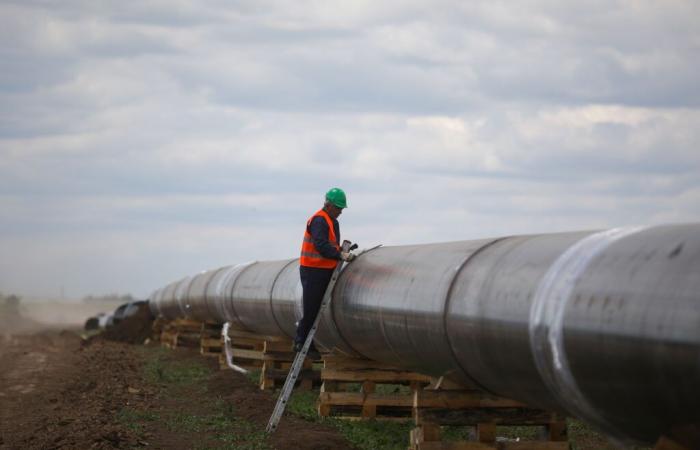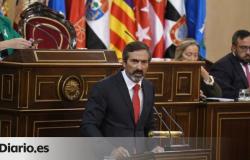The European Union will announce on Tuesday a road map to gradually eliminate the gas ties that it still maintains with Moscow, but, in the absence of sanctions, it will be difficult for buyers to terminate gas contracts using legal options such as force majeure.
The road map occurs at a time when the United States is pressing Russia to reach a peace agreement with Ukraine. If reached, the agreement could reopen the door to Russian energy and soften the sanctions.
About 19 % of Europe’s gas continues to come from Russia, through the Turkstream Gas Pipeline and Liquefied Natural Gas shipments (LNG), and the European Union has the non -binding objective to end the imports of Russian fossil fuels by 2027.
The Commission is studying legal options to allow European companies to invoke force majeure and break their gas contracts with Russia without incurring sanctions, as well as measures to prohibit companies from holding new gas contracts with Russia, as a senior EU official said last month.
Lawyers and analysts affirmed that it was doubtful that the force majeure worked, given the years since the EU promised to end Russian gas imports in 2022, after the invasion of Ukraine by Russia.
AGNIESZKA ASON, an independent lawyer specialized in LNG contracts, said that, so that force majeure is declared, the supplier must breach the contract, for example, through the lack of delivery. However, it has been shown that the remaining Russian supplies have worked well during the three years of war.
«Any deliberate action undertaken by the EU already weakens the case of force majeure. It is the opposite of what the concept of force majeure means, ”said Ason, who is also a senior researcher at Oxford Institute for Energy Studies.
Legal experts said that sanctioning Russian gas imports is the most effective measure to gradually eliminate Russian gas.
For this, the unanimous approval of the 27 EU countries would be needed, but Slovakia and Hungary have tried to maintain close political and commercial ties with Russia, and the latter has promised to block energy sanctions.
Since the beginning of the war in Ukraine, Gazprom and European companies have initiated legal actions and contrademands for breach of gas and tax contracts. According to judicial documents, Reuters calculations estimate that these disputes amount to about 18,500 million euros (21 billion dollars).
Contracts with the Russian Gazprom company include “Take-Or-Pay” clauses that force buyers who reject gas supplies to pay up to 95 % of the contracted volumes.
David Haverbeke, partner of the Fieldfisher law firm, said that the EU should focus on helping companies argue that the change of circumstances since 2022, such as the risks of buying Russian gas in front of other supplies, should give them reasons to renegotiate, and possibly rescue, their contracts with Russia.
“I would try to rely on the EU regulations approved since 2023 and invoke the difficulties derived from changes in the regulatory framework,” he said.
Another option could be to force companies to make future purchases of Russian LNG through a Joint EU purchase program and establish a maximum quota for the volumes that can be purchased, Haverbeke added.






